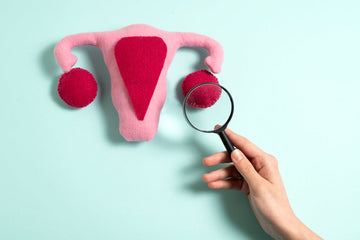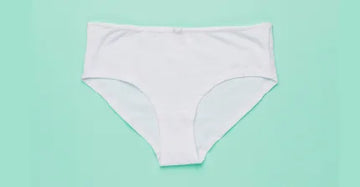Birth control is often known to prevent pregnancy, but many forms provide additional benefits beyond contraceptives, such as managing the menstrual cycle. An increasing trend among women is to use birth control to prevent pregnancy or leave their period completely. This blog focuses on the types of birth control that stop periods, providing a clear understanding of how they work and what to expect. For many women, choosing to avoid the menstrual cycle is about painful cramps, severe bleeding, and relief from mood changes. Others prefer it for handling lifestyle causes, traveling, or handling medical conditions such as endometriosis or PCOS. Whatever the reason, today's contraception methods provide safe and effective options for controlling your cycle.
Does Birth Control Prevent Menstruation?
Hormonal birth control treatment, in particular, can suppress or stop periods over time. They reduce or prevent menstrual bleeding by weakening the uterine lining, disrupting ovulation, and preserving stable hormone levels. Period skipping on occasion, such as postponing it by bypassing the break week, is very different from the expiration of the period through long-term use. For most women, this type of period suppression is safe and efficient, which provides a reliable means of increasing the quality of life when used with symptoms of menstruation and consulting a medical expert.
What are The Types of Birth Control That Stop Periods?
Birth Control Pills:
To reduce or prevent bleeding, these drugs dilute the uterine lining and prevent ovulation. While extended-cycle drugs like Seasonique restrain up to four periods per year, continuous cycle drugs such as Amethysts completely remove periods. By avoiding placebo tablets, regular pills can also be used to avoid periods. Many cycles may be required for full-period suppression.
Hormonal Intrauterine Device (IUD):
Hormonal intrauterine devices like Mirena IUDs and Liletta IUDs release progestin that thins the uterine lining, often reducing or stopping periods. Inserted into the uterus, they last three to eight years. Approximately 20–50% of users experience a cessation of menstruation within a year. They are low-maintenance, highly effective, and easily reversible when removed.
Birth Control Shot:
The Depo-Provera shot is given every three months to prevent ovulation and thin the uterine lining. Many women experience lighter periods initially, and about half stop having periods after a year. It’s effective but may cause irregular bleeding early on. Some side effects include mood changes and weight gain.
Birth Control Implant:
Nexplanon is a small rod inserted under the skin that continuously releases hormones to stop ovulation. Approximately 30–40% of women experience a cessation of menstruation after one year. It works for up to three years and is highly effective, although irregular spotting or bleeding may occur initially.
Vaginal Ring:
To prevent ovulation, the vaginal ring protects progestin and estrogen. Women can avoid bleeding by inserting a new ring continuously every three to four weeks, stopping periods to bypass the ring-free week. Although this technique is user-controlled and successful, maintaining duration suppression requires regular use.
How Long Does It Take to Stop Periods?
It takes time to prevent the period, which varies depending on the contraceptive approach and the body's response. Some strategies, including birth control or hormonal IUD, may take several months to prevent your bleeding, while others, including continuous pills, may work more quickly. It is not uncommon to experience temporary spotting or abnormal bleeding for the first few months, as the body adjusts to changes. These aspects usually decrease over time, and everyday use will increase the chances of completing the period.
Benefits of Stopping the Period With Birth Control:
-
Using birth control to suppress menstruation can reduce problems related to severe bleeding and painful cramps, while maintaining relaxation, which can reduce the possibility of anemia and excessive blood loss.
-
Along with reducing inflammation, the fluctuations in hormone levels help to balance PCOS and endometriosis, which improves symptoms and overall health.
-
The period suppression provides more control over lifestyle factors, giving women the opportunity to have mild, painful, or unpleasant periods during physical activities, travel, or significant events, thereby allowing for rest, comfort, and self-care.
What Are The Possible Side Effects?
Some women may have initial success in bleeding or spotting when using birth control to prevent periods, as their bodies may require time to adapt. Additionally, it is possible that hormonal side effects may vary from person to person and can include symptoms such as mood changes, weight gain, or headaches. Remember that not everyone is suitable for each method of birth control. Ethically, medical history and personal preferences play a significant role in determining the best approach. When you see a doctor, it is guaranteed that drugs are used safely and effectively to meet personal needs.
Which Type is The Best For You?
Choosing the best types of birth control that stop periods depends on many factors, including your health history, lifestyle, and comfort with various methods. Some options may suit long-term solution seekers, while others prefer more flexible control. Side effects and medical conditions also affect the choice. Because everyone's body and needs are different, it is essential to receive personalized advice and consult a doctor to ensure that you choose a safe and effective method that fits your lifestyle and health goals.
Conclusion
Many types of birth control that stop periods such as hormonal IUDs, vaginal rings, extended-cycle tablets, birth control and transplants can effectively stop or reduce duration. Relief from cramps, excessive bleeding, and menstrual abnormalities is among the benefits of each technique, which suppresses menstruation differently. Your health, lifestyle, and personal preferences will all play a role in your decision. A doctor provides safe and reliable advice and should be consulted to make informed decisions. Keep in mind that period management is a personal choice, and due to the options available today, you can select what is best for your body and life, taking charge of your care, confidence, period, and choice.
FAQ’s:
What Are The Most Effective Types Of Birth Control That Stop Periods Completely?
The most effective type of birth control that prevents pregnancy includes hormonal IUDs (eg, Mirena), Birth Control Shots (Depo-Provera), Extended-cycle tablets (like Seasonique), continuous pills (eg, amethysts), and implants (such as Nexplan).
How Long Does It Take For Birth Control To Stop Periods?
It depends on the method and personal response. Some types of birth control that stop periods may take a few months, while others, such as continuous pills, can reduce bleeding very rapidly. Spotting is common at first.
Are The Types Of Birth Control That Stop Periods Safe For Long-Term Use?
Yes, most types of birth control that prevent pregnancy for prolonged use are determined by the doctor. However, individual medical history should be evaluated before starting.
Can I Use Regular Birth Control Pills To Skip Periods?
Yes, many people use regular birth control pills to regulate their periods, except for a hormone-free week. This can be done safely under the guidance of a doctor and is one of the standard types of birth control that stop periods.
Do All Women Stop Bleeding On These Types Of Birth Control That Stop Periods?
Not always. While many experiences are mild or have no lasting effects, reactions can change. Some people may continue spotting or light bleeding. Effectiveness in preventing pregnancy depends on specific types of birth control and how the body reacts.





